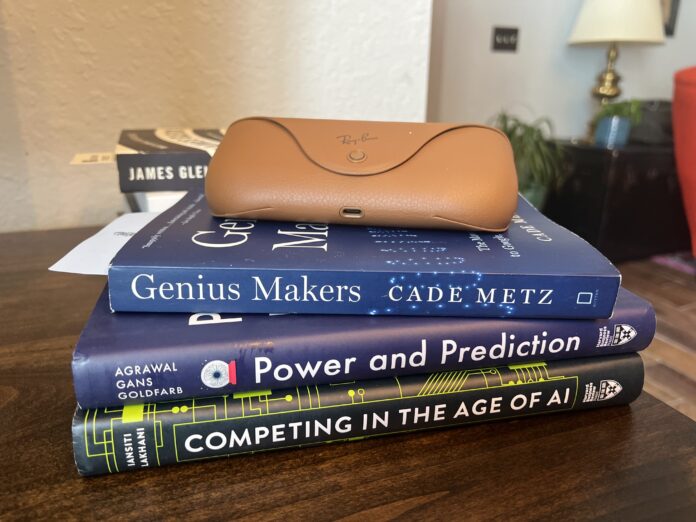The Meta CEO told investors that the Ray-Ban Meta AI glasses “are a real hit”
First things first, AI infrastructure is a continuum that spans cloud, datacenter, edge and devices. Distributing workloads improves latency, bolsters privacy and, generally speaking, makes the economics of the whole thing work. In this context, devices and edge infrastructure–things like glasses, PCs and phones and the things one-hop away like cellular basestations, Wi-Fi access points, etc…–will be instrumental in helping AI deliver on the hype. With that, Meta CEO Mark Zuckerberg, on an earnings call last week, discussed the outlook for the Ray-Ban Meta AI glasses, which he called a “real hit.”
“This will be the year when we understand the trajectory for AI glasses as a category,” he said. “This will be a defining year that determines if we’re on a path towards many hundreds of millions and eventually billions of AI glasses—and glasses being the next computing platform like we’ve been talking about for some time—or if this is just going to be a longer grind. But it’s great overall to see people recognizing that these glasses are the perfect form factor for AI.
Not to overly editorialize this point but the Ray-Ban Meta AI glasses are a great product that I’ve used damn-near daily since I bought a pair more than two years ago. While the AI assistant was initially a bit lackluster, it’s consistently improving and becoming more and more useful, particularly using the onboard camera to take a picture then have the AI answer questions or provide additional detail.
Back to Zuckerberg: “I think that glasses are the ideal form factor for an AI device because you can let the AI assistant on your glasses see what you see and hear what you hear, which gives it the context to be able to understand everything that’s going on in your life that you would want to talk to it about get context on…I think that glasses are going to be a very important computing platform in the future. When phones became the primary computing platform, it’s not like computers went away. I think we’ll have phones for some time. But there are a lot of people in the world who have glasses. It’s kind of hard for me to imagine that a decade or more from now all the glasses aren’t going to basically be AI glasses as well as a lot of people who don’t wear glasses today, finding that to be a useful thing. So I’m incredibly optimistic about this.”
Also of note, last week Bloomberg reported that Apple has scrapped work on a product that would compete with Meta’s entry in the category. That following the boom, then almost immediate bust, in terms of market reception to the Apple Vision Pro.
Qualcomm has really stepped up messaging around edge AI as of late. Here’s some commentary from the chipmaker during CES, and here’s some context on the relationship between AI and spatial computing.

